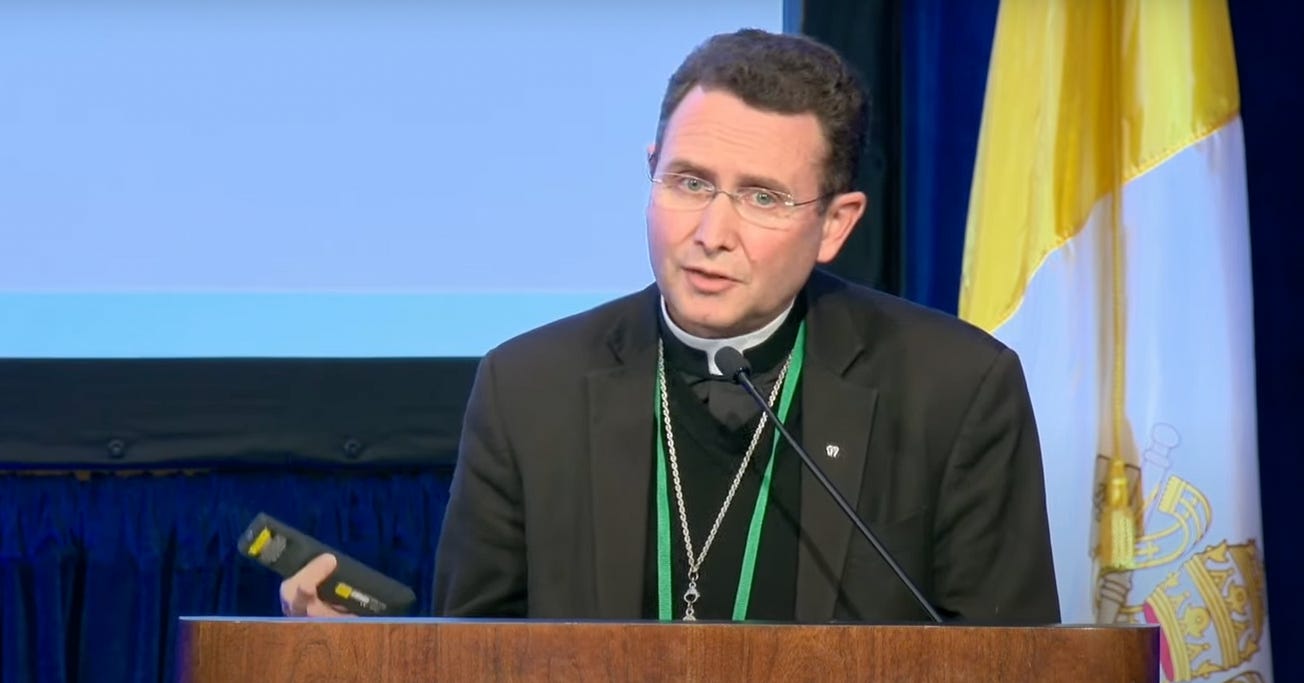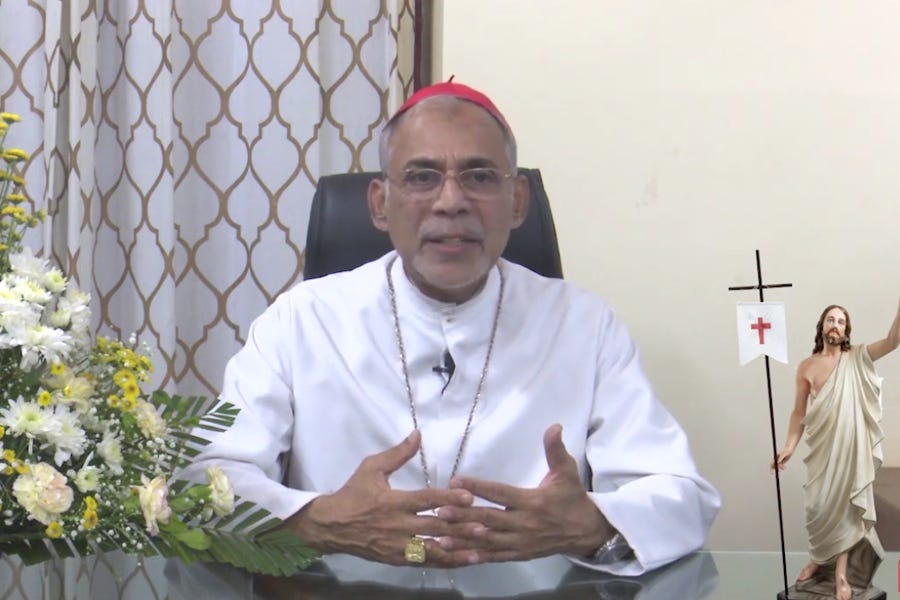Yesterday, Cardinal Wilfred Napier Fox of the Archdiocese of Durban in South Africa turned 80 years old, aging out of the right to vote in the next papal conclave, whenever that may be. The face of the college of cardinals is always changing, with new appointments being made and members of the old guard fading out.
While the young guns (relatively speaking) tend to get attention as they join the ranks of papal electors, it's also worth noting those who are departing - and the influence they may or may not still wield on Church affairs in the future. Here are five cardinals who turn 80 in 2021.
Cardinal Gabriel Zubeir Wako, emeritus Archbishop of Khartoum, Sudan, cardinal since 2003
The first cardinal to age out of future conclaves this year, Wako turned 80 in February. The former Archbishop of Khartoum led the largest Sudanese diocese for more than 35 years, surviving an assassination attempt by Muslim militants in the process.
Wako’s experience of shepherding a local Church in circumstances of severe civil unrest and persecution has, in the past, provided a needed counterbalance to a college of cardinals often considered to be focused on the concerns of Western society - there are currently 13 voting age cardinals from Africa, and 16 from Italy.
One of two African cardinals to age out of a future conclave this year, it is likely his departure from the voting ranks will signal an African appointment by Pope Francis later this year to boost the number of remaining cardinals under 80 from the continent.
Cardinal Wilfred Napier Fox OFM, Archbishop of Durban, South Africa, cardinal since 2001
The South African cardinal has been Archbishop of Durban for nearly 30 years, and has long been a one of the continent’s highest profile voices in the Church. Made a cardinal by St. John Paul II in February of 2001, he turned 80 on March 8, almost exactly 20 years later.
The cardinal’s life and career have encompassed sweeping social change in his native South Africa. He was first made a bishop in 1978, at a time when the apartheid system remained deeply entrenched and the racist government of South Africa was increasingly considered an outcast on the world stage. By the time of his appointment as a cardinal in 2001, he had already played an important role in the transformation of the Church in South Africa, and helped steer the booming evangelization of the continent which has seen the number of Catholics explode in recent decades.
An outspoken champion on life issues, and a frequent presence on Twitter, Napier remains an influential voice in the Church in Africa, and is looked to by many African bishops as a mentor. He was a visible participant in the recent meetings of the synod of bishops in Rome, both on the family in 2014-15 and on young people in 2018.
During the synod on the family, which led to the Apostolic Exhortation Amoris Laetitia, Napier was appointed by the pope to serve on the group charged with drafting the synod’s relatio, or final document. During the drafting meetings, Napier objected to the inclusion of language about same-sex couples in the section on marriage. The cardinal has previously recalled how the drafting committee ignored his objections and “just carried on discussing how the proposition should be phrased in Italian,” prompting an angry intervention in support of him by then-Washington archbishop, Cardinal Donald Wuerl, who also aged out of any future conclave in November last year.
Despite being 80, Napier remains in post as Archbishop of Durban and, at least for the foreseeable future, will likely remain a reference point for other African cardinals with less direct Roman experience.
Cardinal George Pell, former prefect, Secretariat for the Economy, cardinal since 2003
Cardinal Pell will celebrate his 80th birthday in June. As an English-speaking cardinal from outside the European orbit and as the first prefect of the Vatican’s Secretariat for the Economy, Pell has earned the reputation of a lion in the Vatican jungle, and as the standard bearer for curial financial reform.
Pell is also a reference point for many cardinals on the issue of the sexual abuse crisis. As Archbishop of Melbourne and later Sydney, he was an early reformer on the issue of clerical abuse. Having spent more than a year in prison in his native Australia before being exonerated on charges of sexual abuse himself, he has also emerged as a man known for his deep and quiet faith in the face of suffering.
The cardinal is retired and lives in Rome. While he has declined to speak publicly on the details of ongoing curial financial scandals, many of which he identified during his time as Pope Francis’ economic tzar, Pell would likely be in Rome at the time of any future conclave, and play a part in the meetings of the full college prior to the electors going into seclusion.
His views on Vatican reform, and the relative merits of other serving curial cardinals who might fancy their chances in an election, would likely command close attention from voters.
Cardinal Maurice Piat CSSp, Bishop of Port Louis, Mauritius, cardinal since 2016
Still serving as the Bishop of Port Louis, Mauritius, Cardinal Piat had the unusual distinction of being appointed as a cardinal as a response to his letter of resignation: Pope Francis elevated the bishop to the college in 2016, after he had already turned 75 and formally submitted his resignation in line with canon law.
Cardinal Piat turns 80 in July, and while Pope Francis may, or may not accept his resignation then, he will age out of his current role as a member of the Dicastery for Promoting Integral Human Development, which he has served on since 2017.
Cardinal Beniamino Stella, Prefect, Congregation for Clergy, cardinal since 2014
A career Vatican civil servant, Cardinal Stella will turn 80 in August, bringing to a close more than fifty years of curial and diplomatic service.
Stella still currently leads the Congregation for the Clergy in Rome, which is in charge of the regulation of seminaries and priestly formation, and which handles disciplinary matters concerning priests which do not go to the Congregation for the Doctrine of the Faith. Having been asked by Pope Francis to continue in post well past the nominal retirement age, his successor is expected to be announced in the coming months as part of a wider curial shake-up.
Before his current role, Stella served as the president of the Pontifical Ecclesiastical Academy, the graduate school which trains Vatican diplomats, and previously worked as a nuncio in Cuba, Chad, Colombia, and the Republic of Congo.
After turning 80, Stella will join a growing number of former curial cardinals in Rome. As a lifelong civil servant, it would be unusual for him to become a public voice in retirement, but he did make his mark ahead of the synod of bishops’ extraordinary assembly on the Amazon, ahead of which he spoke out publicly in favor of clerical celibacy as the norm in the Latin Church.
Cardinal Angelo Scola
Emeritus archbishop of Milan, cardinal since 2003
The former Archbishop of Milan and Patriarch of Venice, Cardinal Scola is perhaps best known outside of Italy as the cardinal who wasn’t elected pope in 2014. A prolific author, Scola has published works on theology, bioethics, marriage, human sexuality, ecuminism, and anthropology.
As a close friend of pope emeritus Benedict XVI and considered something of a godfather to an entire generation of Italian bishops, Scola will likely remain something of a reference point for many Italian Catholics, including bishops and cardinals, in his retirement.





